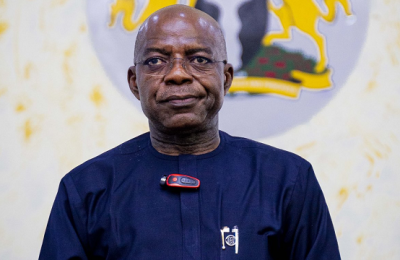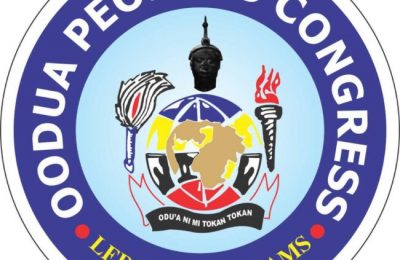
THIS week, amid the deep immiseration of Nigerians, the Nigerian National Petroleum Company Limited (NNPC Ltd) announced yet another hike in the pump price of fuel. For the third time in two months, it raised the pump price of fuel, this time from N897 to N1,030. It had pulled the increment stunt following the business mogul, Aliko Dangote’s announcement of his refinery’s intention to roll out petrol from his refinery on September 2 this year. On the morning of May 29, 2023, when President Bola Ahmed Tinubu took office and announced that “subsidy is gone,” petrol was N198 per litre. Now, a year and five months later, it is between N1200 and N1300 in most filling stations, and it may be N2000 by December. Along with the increment in the price of fuel, the cost of goods and services, and especially foodstuff, has skyrocketed spectacularly.
According to reports, the latest price hike follows the NNPCL’s decision to terminate its exclusive purchase agreement with the Dangote Refinery. On Monday this week, the NNPCL claimed that the oil other marketers could begin to purchase petrol directly from the refinery. And playing Pontius Pilate, the Federal Government, as usual, distanced itself from the recent hike, attributing it to global energy market conditions. Per the Minister of Information and National Orientation, Mohammed Idris, the NNPCL’s decision was influenced by market forces, not government directives, and this was in line with the Petroleum Industry Act (PIA). According to the minister, the government no longer regulates petrol pricing, and the NNPCL has been absorbing losses since the removal of fuel subsidies in May 2023. Idris further linked the price hike to external pressures, particularly the ongoing Middle East crisis, which has caused instability in global oil markets. His verdict: “The NNPCL made this decision based on market realities and not on any instruction from the government.”

Naturally, following the hike, the Independent Petroleum Marketers Association of Nigeria (IPMAN) has been keen to sing the song of “full deregulation” of the oil sector. Speaking on Channels Television, IPMAN’s president, Abubakar Garima, delivered this devious verdict: “Well, we know now that we cannot call it an increase, but rather, we can call it the removal of subsidy — deregulation. Now, deregulation has started taking place fully.”
Going by the preachments of officialdom, subsidy is anathema. You probably remember the then President Muhammadu Buhari’s famous statement that there was no provision for subsidy in the 2020 budget, a claim that the NNPCL also forced down the throat of Nigerians. To Buhari, with a 60 percent reduction in revenue, the country just could not afford to sustain the payments “if reasonable provisions must be made for health, education and other social services.” For Nigerians who endured the pains of a hike in the pump price of petrol, Buhari’s declaration seemed to signpost the eradication of the fuel subsidy regime. As it turned out, however, the declaration was mere artifice. If Buhari had ended subsidy, then what did President Tinubu’s “subsidy is gone” statement really mean?
Contrary to the claims of the anti-subsidy rabble, including, sadly, the Financial Times, which recently released a two-faced statement on the Nigerian economy under Tinubu, there is nothing inherently bad in a subsidy regime. Indeed, as I have said time and again, nearly every government in the world pays subsidies. Bahrain, Turkmenistan, Venezuela, United Arab Emirates, Algeria, Azerbaijan, Ecuador, Iran, Kazakhstan, Kuwait, Malaysia, Oman, Qatar, Saudi Arabia and Venezuela are all oil-producing countries, but guess what? They all subsidize oil consumption, shying away from the bug of “full deregulation” that threatens to completely emasculate Nigerians. I yield the floor to the global outfit, fDi Intelligence: “The small gas-rich country of Qatar extended by far the highest total fuel subsidies per capita in 2022, spending more than $14,100 per person. The majority of Qatar’s 2022 fuel subsidies were given for natural gas and equivalent to about 19% of its GDP. After Qatar, three other oil-producing countries in the Gulf — Bahrain, Saudi Arabia and Kuwait — led the 170 countries with data compiled by the IMF. Saudi Arabia had by far the highest subsidies of any of the G20 major economies at almost $7000 per person, with the majority going to oil products. It was followed by South Korea, Russia and Japan… In 2022, total fuel subsidies worldwide amounted to about $7tn, equivalent to 7.1% of global gross domestic product (GDP) and up by about 18.3% from the previous year.”
As I noted in a previous article, the U.S. government heavily subsidizes its agric sector, oil and energy producers, automakers, housing, and healthcare. It even subsidizes other countries, giving over a trillion dollars in aid to just five countries between 1946 and 2024: Israel ($337.0 billion), Egypt ($198.9 billion), former South Vietnam ($193.8 billion), Afghanistan ($168.5 billion), and South Korea ($127.6 billion). It subsidizes the fossil fuel industry. Let me reiterate the fact that in December 2022, the Pedro Sánchez government approved new measures to alleviate inflation and protect the most vulnerable groups in Spain. It eliminated VAT on basic foodstuffs, gave money to families with low incomes, and extended the reduction of taxes on electricity and gas. In addition, it committed to revaluing pensions by 8.5 percent in 2023 to assist pensioners. Sanchez told whoever cared to listen that his government was allocating necessary resources to protect the social majority of the country.
If the Tinubu government does not jettison the so-called liberal/IMF policies that I have had occasion to pillory on this page, it will preside over the funeral of the Nigerian masses. It is illogical to think that “reforms” which pauperize the vast majority of the Nigerian populace will somehow lead to an El Dorado. You do not develop a country by destroying the creative energies of its populace, but that precisely is what IMF policies orchestrate. In previous articles on this page, I detailed the ruinous impacts of IMF policies in countries like Kenya and Ghana, which killed its own rice industry under IMF diktats.
My submission, then, is simple: full deregulation of PMS is the same thing as final burial of the Nigerian masses. President Tinubu must change course.
READ ALSO: Police confirm Oloba Salo hospitalised after gun attack in Lagos







